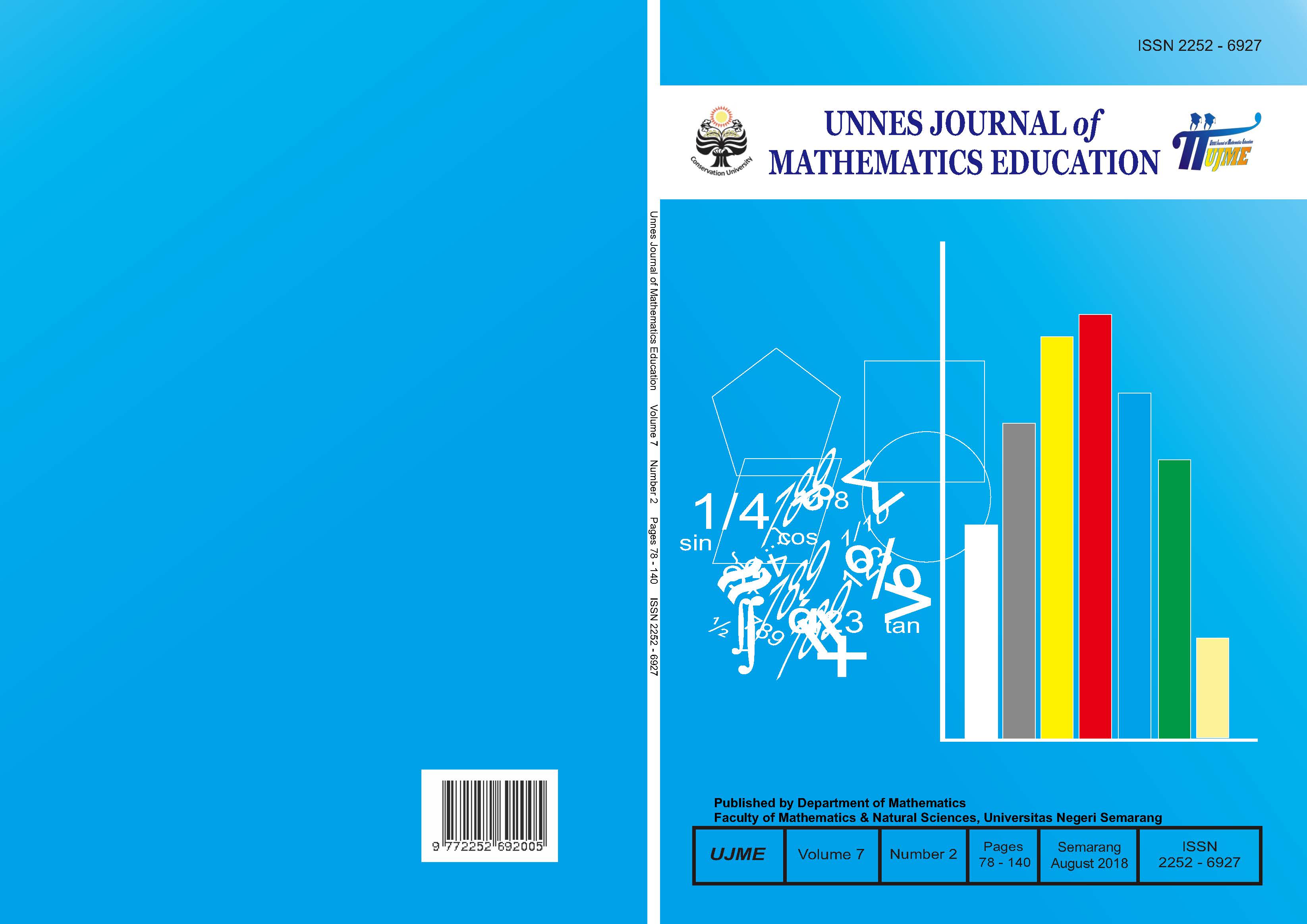The role of resilience (adversity intelligence) and creativity in mathematics learning
##plugins.themes.academic_pro.article.main##
Abstract
This study aims to analyze and prove the existence of resilience influence and creativity to the ability of problem solving in mathematics. The method of study used is survey method with correlational analysis. The population of this study is all students of class X SMK Kharismawita 2, South Jakarta. While the sample is 30 students class X SMK Kharismawita 2, South Jakarta in the academic year 2017/2018. Further, the instruments of data collection consisted of: a questionnaire about resilience and creativity, and a written test of mathematics subjects. The requirements of data analysis consist of: normality, linearity, and multi-collinearity test. The result of three data analysis requirement test obtained by conclusion that the three groups of data come from normal distributed population, the two regression models which are formed are in linear pattern, and there is no relation between the independent variables. Further the hypothesis test is done by correlation and regression test. Eventually, from the results of hypothesis test and analysis, it can be concluded that there is influence of resilience and creativity to the problem solving ability in mathematics. It means that resilience variable and creativity play a role in mathematics learning, which affect the problem solving skills of mathematics. Thus, in the learning, teachers focused on the factors of resilience and creativity of learners and made efforts to improve both of these factors through interesting math learning
##plugins.themes.academic_pro.article.details##
References
Ahmad, S. (2016). Ketahanmalangan Kepemimpinan Kepala Sekolah: Salah Satu Faktor Penentu Keberhasilan Kepala Sekolah. Yogyakarta: Deepublish.
Balitbang Kemdikbud. (2017). Rekap Hasil Ujian Nasional (UN) Tingkat Sekolah. http://puspendik.kemdikbud.go.id/hasil-un/. Diakses tanggal 4 Oktober 2017.
Ekawati, E. (2011). Peran, Fungsi, Tujuan, dan Karakteristik Matematika Sekolah. http://p4tkmatematika.org/2011/10/peran-fungsi-tujuan-dan-karakteristik-matematika-sekolah/. Diakses tanggal 2 Oktober 2017.
Kemdikbud. (2015). Peringkatan dan Capaian PISA Indonesia Mengalami Peningkatan. https://www.kemdikbud.go.id/main/blog/2016/12/peringkat-dan-capaian-pisa-indonesia-mengalami-peningkatan. Diakses tanggal 4 Oktober 2017.
Eddy, P. (2006). Pengaruh Kreativitas Dan Kerjasama Tim Terhadap Kinerja Manajer Pada PT. Jesslyn K Cakes Indonesia Cabang Surabaya. Jurnal Penelitian Ilmu-ilmu Ekonomi, 6(2), 102-108.
Sambada, D. (2012). Peranan Kreativitas Siswa terhadap Kemampuan Pemecahan Masalah Fisika dalam Pembelajaran Kontekstual. Jurnal Penelitian Fisika dan Aplikasinya (JPFA), 2(2), 37-47.
Stoltz, P.G. 2000. Adversity Quotient, Mengubah Hambatan Menjadi Peluang. Jakarta : PT Gramedia Widiasarana Indonesia.
Sugesti, F. E., Budiyono, B., & Subanti, S. (2014). Eksperimentasi Model Pembelajaran Kooperatif Tipe Structured Numbered Heads (SNH) Dan Two Stay Two Stray (TSTS) Dengan Pendekatan Realistic Mathematics Education (RME) Pada Prestasi Belajar Matematika Ditinjau Dari Adversity Quotient (AQ) Siswa.. Journal of Mathematics and Mathematics Education, 4(1), 1-10.
Sulianto, J., & Mandarsary, R. (2011). Upaya Meningkatkan Aktivitas dan Kreativitas Siswa pada Materi Matematika di Sekolah Dasar dengan Pembelajaran Pemecahan Masalah. MALIH PEDDAS: Majalah Ilmiah Pendidikan Dasar, 1(1).
Supardi U.S. 2014. Pengembangan Instrumen Pengukuran Ketahanmalangan (Kecerdasan Adversitas) Siswa. Prosiding Seminar Nasional Evaluasi Pendidikan Program Pacsasarjana UNJ. ISBN : 978-608-602-70135-0-6.
Supardi U.S.; Haryanto; dan Suhendri, Huri. 2014. Pengembangan Instrumen Pengukuran Kreativitas Siswa. Prosiding Seminar Nasional Hasil-Hasil Penelitian LPPM Universitas PGRI Semarang. ISBN : 978-602-0960-08-1
Utami, M. (2004). Pengembangan Kreativitas Anak Berbakat. Jakarta: Rineka Cipta
